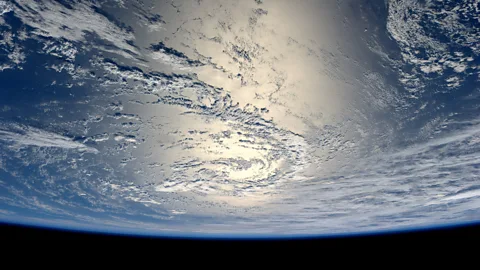Your guide to Earth’s biggest problems

BBC Future Now is extending our series about the grandest challenges faced by humankind.
Earlier this year, BBC Future Now published a series called the Grand Challenges: addressing some of the world’s biggest, most pressing problems that demand solutions in the very near future.
But the future is a complicated subject in 2017. Now more than ever, it’s fast-moving, complicated, increasingly immediate. We can’t keep thinking about the future as a far-off intangible. Today, things move so quickly, that the future already is happening, and already affecting us. And in many ways, we’re struggling to adapt quickly enough.
Grand Challenges
In this special series, Future Now takes a close look at the biggest, most important issues we face in the 21st Century.
From now until July, we'll bring you insight from leading scientists, technologists, entrepreneurs and influencers to help you make sense of the challenges you'll face in today's rapidly evolving world.
That’s why today, we’re launching Grand Challenges II – a continuation of our original series; a comprehensive guide to today’s big problems and mega-trends. Over the next few weeks, we’ll explore more of humankind’s biggest, most urgent issues, what they mean for you, and what’s being done to combat them, complete with deep reportage from BBC journalists and insight from experts, scientists and influencers from across the globe.
- READ MORE: 50 grand challenges for the 21st Century
This time around, we’ll tackle issues like water – and not just how climate change is threatening our most fundamental resource for survival. We’ll also explore the unexpected ways water is a social issue, a political issue, an energy issue, even a gender issue – and how clean water scarcity triggers a host of problems, from disease outbreaks to government feuds.
We will also examine our eroding sense of privacy, especially living in what some call a “golden age of surveillance.” As more and more humans get internet access worldwide, and as more and more of our devices are connected to other devices – and to the databases of huge corporations – the right to a sense of anonymity is at risk. We’ll tell you how most people don’t exercise best practices when it comes to safeguarding their identity – and what you can do better protect your own.
And this week, we’ll take a probing look into the topic of automation – and what it actually means for you, beyond the familiar, sensational headlines of job-stealing robots. We’ll talk about the ethical concerns of who’s programming this technology, the safety concerns of working alongside machines with minds of their own, and the surprising benefits that being a human has when it comes to outperforming even the cleverest, most precise, number-crunching superbot.
But that’s only the beginning. The near future also demands greater attention to a range of rapidly-evolving issues: an explosively growing global population, the complicated relationship between governments and nuclear power, the fight for worldwide gender equality, and more.
We live in a rapidly-changing era of almost infinite potential. But to make sure we will fulfil that potential, we need to fully understand the challenges we face. Stay tuned to this special series from BBC Future Now, and stay up to speed.
If you liked this story, sign up for the weekly bbc.com features newsletter, called “If You Only Read 6 Things This Week”. A handpicked selection of stories from BBC Future, Earth, Culture, Capital, and Travel, delivered to your inbox every Friday.
